GNU Radio is a free software development toolkit that provides the signal processing runtime and processing blocks to implement software radios.
GNU Radio is a free software development toolkit that provides the signal processing runtime and processing blocks to implement software radios using readily-available, low-cost external RF hardware and commodity processors. It is widely used in hobbyist, academic and commercial environments to support wireless communications research as well as to implement real-world radio systems.

GNU Radio applications are primarily written using the Python programming language, while the supplied, performance-critical signal processing path is implemented in C++ using processor floating point extensions where available. Thus, the developer is able to implement real-time, high-throughput radio systems in a simple-to-use, rapid-application-development environment.
While not primarily a simulation tool, GNU Radio does support development of signal processing algorithms using pre-recorded or generated data, avoiding the need for actual RF hardware.
GNU Radio is licensed under the GNU General Public License (GPL) version 3. All of the code is copyright of the Free Software Foundation.